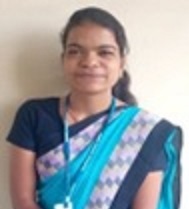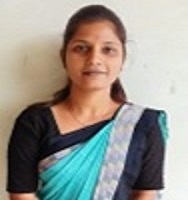DEPARTMENT OF COMPUTER SCIENCE & ENGINEERING
VISION
To be the center for excellence to cater the needs of IT industry and rural IT domain.
MISSION
- To provide sound academic environment to students for a complete learning experience.
- To provide state-of-the-art technical infrastructure and motivate students and staff to realize their own potential.
- To promote the technical skills and ensure all-round development of the students and staff.

Prof. Yogesh G. Katole
B.E. (EXTC),. M. E. (DE)HOD CSE
It gives me immense pleasure to lead the department of CSE and I take the privilege to welcome you all.
Department of Computer Science & Engineering welcomes young aspirants around the globe to shape their career by developing strong technical, analytical and communication skills so that the students besides going for software industry jobs have the necessary technical foundation for competing for postgraduate studies in leading Indian and International universities for diversified careers in, research, management, entrepreneurship etc. The department achieves these objectives through focus on all important areas of student
development during the stay at STC. Special attention is given to the teaching learning process and several innovative programs including industrial training, independent minor and major projects, industry visits, strong institute industry interface, lectures by guest speakers, expert lectures by renowned faculties etc. are conducted regularly.
We are growing department with an outstanding, qualified and experience faculties. The department offer courses on Bachelor degree in Computer Science & Engineering These Course is approved by AICTE and affiliated to Sant Gadge Baba Amravati University, Amravati with an intake of 30 in B.E. Department provides world class infrastructure with the state of the art computer labs equipped with latest software.
Our Objectives:
• To provide sound academic environment to students for a complete learning experience.
• To provide state-of-the-art technical infrastructure and motivate students and staff to realize their own potential.
Our vision is to produce excellent engineers that brings out with high technical competencies and promotes high-end research to meet the current and future challenges in professional and research assignments in civil engineering and allied fields. Our department is ready to provide students with fundamental knowledge of engineering and build up career of students in government and private sector. We also plan to develop leadership skill, entrepreneurial skills in students. We also help to finding out knowledge inside of them and according to that we will guide for making bright career in future.
I look forward for preparing my students to face the challenges regarding engineering and technology, research area, becoming a successful entrepreneur who might be helpful for the betterment of the society and our nation

Prof. Vrushali G. Telharkar
BE (CSE), ME (CE)-

Prof. Gayatri K. More
BE (CSE)-

Prof. Shweta V. Rathod
B.E. (CSE)-

Prof. Pratiksha S. Mhasal
B.E. (CSE)-

Prof.Dnyaneshwar Sawale
B.E. (CSE)-
PO'S
PO1:
Engineering knowledge: Apply the knowledge of mathematics, science, engineering fundamentals, and an engineering specialization to the solution of complex engineering problems.
PO2:
Problem analysis: Identify, formulate, review research literature, and analyze complex engineering problems reaching substantiated conclusions using first principles of mathematics, natural sciences, and engineering sciences
PO3:
Design/development of solutions: Design solutions for complex engineering problems and design system components or processes that meet the specified needs with appropriate consideration for the public health and safety, and the cultural, societal, and environmental considerations.
PO4:
Conduct investigations of complex problems: Use research-based knowledge and research methods including design of experiments, analysis and interpretation of data, and synthesis of the information to provide valid conclusions.
PO5:
Modern tool usage: Create, select, and apply appropriate techniques, resources, and modern engineering and IT tools including prediction and modeling to complex engineering activities with an understanding of the limitations.
PO6:
The engineer and society: Apply reasoning informed by the contextual knowledge to assess societal, health, safety, legal and cultural issues and the consequent responsibilities relevant to the professional engineering practice.
PO7:
Environment and sustainability: Understand the impact of the professional engineering solutions in societal and environmental contexts, and demonstrate the knowledge of, and need for sustainable development.
PO8:
Ethics: Apply ethical principles and commit to professional ethics and responsibilities and norms of the engineering practice.
PO9:
Individual and team work: Function effectively as an individual, and as a member or leader in diverse teams, and in multidisciplinary settings.
PO10:
Communication: Communicate effectively on complex engineering activities with the engineering community and with society at large, such as, being able to comprehend and write effective reports and design documentation, make effective presentations, and give and receive clear instructions.
PO11:
Project management and finance: Demonstrate knowledge and understanding of the engineering and management principles and apply these to one’s own work, as a member and leader in a team, to manage projects and in multidisciplinary environments.
PO12:
: Life-long learning: Recognize the need for, and have the preparation and ability to engage in independent and life-long learning in the broadest context of technological change.
PSO'S:
A graduate of the Computer Science and Engineering will demonstrate:
1. PSO1:
Demonstrate knowledge of advanced programming techniques to solve contemporary issues.<
2. PSO2:
Perform projects with novel ideas and implement them.
Laboratory Details
| Sr No | Name of Laboratory | Room No. |
|---|---|---|
| 1 | Programming Lab | AG-10 |
| 2 | Innovation Lab | AG-11A |
| 3 | Network Lab | AF-13 |
| 4 | DBMS Lab | AF-11 |
| 5 | Fundamental Lab | BG-12 |
| 6 | Operating System Lab | BG-02 |
